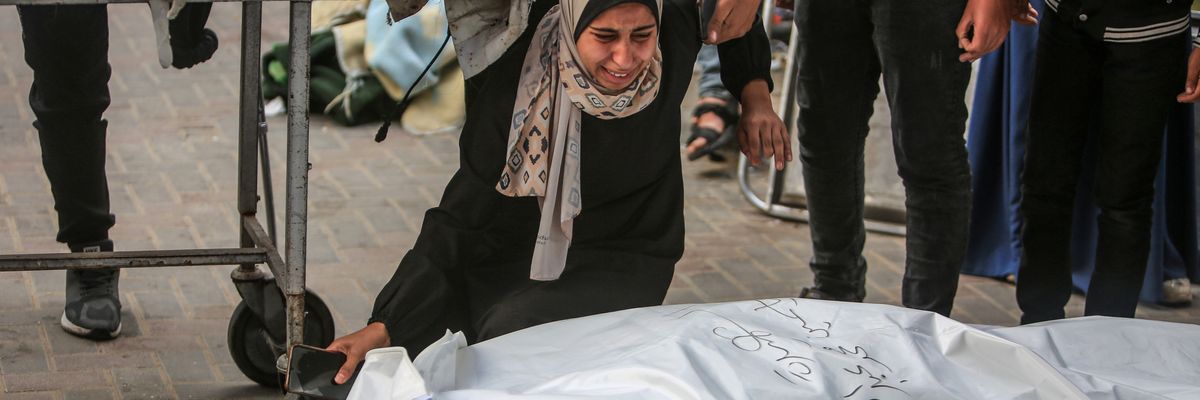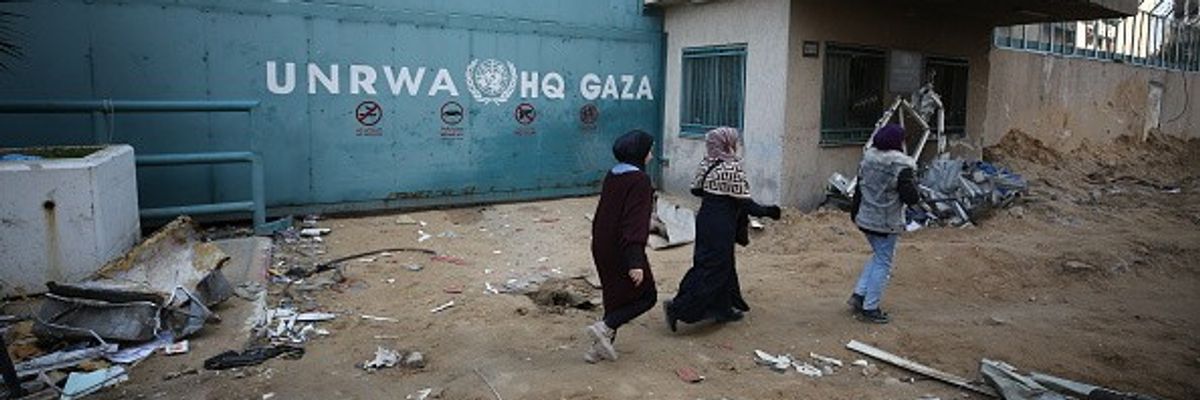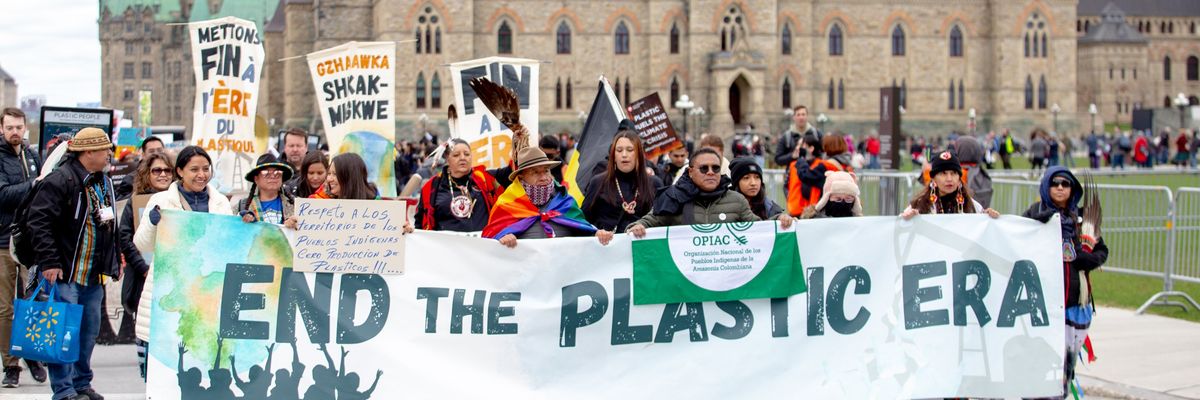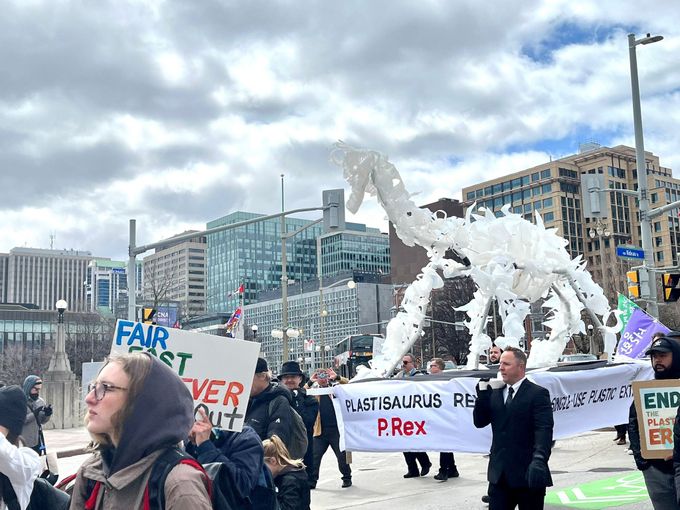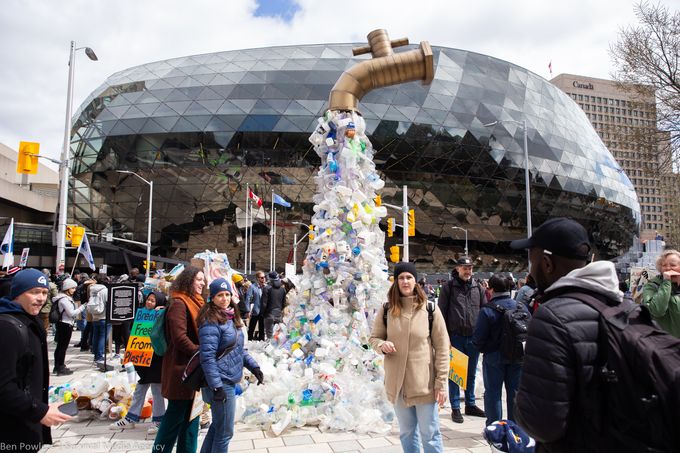Original article by JESSICA CORBETT republished from Common Dreams under Creative Commons (CC BY-NC-ND 3.0).
While expressing gratitude for solidarity actions, Congresswoman Ilhan Omar—whose daughter was suspended—said that “this about the genocide in Gaza and the attention has to remain on that.”
Over 34,000 Palestinians in Gaza have been killed by U.S.-backed Israeli troops, and Columbia University students have been suspended and arrested by New York Police Department officers in recent days for protesting the slaughter—which led to a walkout by the Ivy League institution’s faculty on Monday.
The Guardian reported that “hundreds of members of the teaching cohort at Columbia walked out in solidarity with the students who were arrested” while “students put protest tents back up in the middle of campus on Monday after they were torn down last week when more than 100 arrests were made.”
Yonah Lieberman, co-founder of IfNotNow, a Jewish-led U.S. group that organizes against Israel’s apartheid, declared: “Solidarity with these faculty members. Shame on establishment politicians and agitators who are smearing the anti-war protest at Columbia as anything other than what it is: a courageous stand for freedom and peace.”
Naureen Akhter, a founding member of the New York-based group Muslims for Progress, said: “Thank you to the professors who stood in solidarity with student protestors, who didn’t give into instigators who are fanning flames of hate and division. Remember the calls are for transparency, divestment, and amnesty for students!”
Congresswoman Ilhan Omar (D-Minn.)—a critic of Israel’s war on Gaza whose own daughter, Isra Hirsi, was suspended from Columbia’s Barnard College last week for “standing in solidarity with Palestinians facing a genocide,” as the 21-year-old junior put it—also noted the faculty walkout and “nationwide Gaza solidarity movement.”
“This is more than the students hoped for and I am glad to see this type of solidarity,” said Omar. “But to be clear, this about the genocide in Gaza and the attention has to remain on that.”
The walkout in New York City followed 54 Columbia Law School professors sending a letter to administrators that states, “While we as a faculty disagree about the relevant political issues and express no opinion on the merits of the protest, we are writing to urge respect for basic rule-of-law values that ought to govern our university.”
“Procedural irregularity, a lack of transparency about the university’s decision-making, and the extraordinary involvement of the NYPD all threaten the university’s legitimacy within its own community and beyond its gates,” they wrote. “We urge the university to conform student discipline to clear and well-established procedures that respect the rule of law.”
In a statement early Monday, several hours before the walkout, Columbia University president Minouche Shafik—who last week enabled NYPD arrests of students at the encampment—announced in her first statement since the sweep that all classes would be virtual “to deescalate the rancor and give us all a chance to consider next steps.”
“Faculty and staff who can work remotely should do so; essential personnel should report to work according to university policy. Our preference is that students who do not live on campus will not come to campus,” Shafik said. “During the coming days, a working group of deans, university administrators, and faculty members will try to bring this crisis to a resolution.”
The national group Jewish Voice for Peace (JVP) on Monday accused Columbia of creating “a climate of repression and harm for students peacefully protesting for an end to the Israeli genocide against Palestinians in Gaza” over the past six months.
“Columbia University has actively created a hostile environment for students who are Palestinian or who support Palestinian freedom. Additionally, the administration’s actions have made the campus much less safe for Jewish students,” JVP said.
According to JVP:
Instead of listening to the calls of Columbia and Barnard students to divest from the genocide perpetrated by the Israeli government, the university has called in the NYPD to arrest students, suspended them, and even expelled them. At present 85 students, 15 of whom are Jewish, are suspended.
Yesterday’s statement by the White House, like the administrators of Columbia University, dangerously and inaccurately presumes that all Jewish students support the Israeli government’s genocide of Palestinians. This assumption is actively harming Palestinian and Jewish students.
The administration has not only harassed Jewish students and failed to ensure their safety and well-being, it has also obstructed their religious observances during Shabbat and prevented them from accessing their Jewish community on the eve of Passover.
While President Joe Biden’s Sunday statement was officially about Passover—a Jewish holiday that begins at sundown on Monday—and not the protests at Columbia and other campuses across the country, it was widely received as a response to the latter.
Biden said in part that “we must speak out against the alarming surge of antisemitism—in our schools, communities, and online. Silence is complicity. Even in recent days, we’ve seen harassment and calls for violence against Jews. This blatant antisemitism is reprehensible and dangerous—and it has absolutely no place on college campuses, or anywhere in our country.”
Jonathan Ben-Menachem, a Ph.D. student at the university, toldCNN that “Columbia students organizing in solidarity with Palestine—including Jewish students—have faced harassment, doxxing, and now arrest by the NYPD. These are the main threats to the safety of Jewish Columbia students.”
“On the other hand, student protesters have led interfaith joint prayers for several days now, and Passover Seder will be held at the Gaza solidarity encampment tomorrow,” he added. “Saying that student protesters are a threat to Jewish students is a dangerous smear.”
Columbia Students for Justice in Palestine said in a lengthy statement that “we are student activists at Columbia calling for divestment from genocide. We are frustrated by media distractions focusing on inflammatory individuals who do not represent us. At universities across the nation, our movement is united in valuing every human life.”
“As a diverse group united by love and justice, we demand our voices be heard against the mass slaughter of Palestinians in Gaza,” the statement continues. “We’ve been horrified each day, watching children crying over the bodies of their slain parents, families without food to eat, and doctors operating without anesthesia. Our university is complicit in this violence and this is why we protest.”
The Columbia Spectator reported Monday that Columbia College passed a divestment referendum that “asked whether the university should divest financially from Israel, cancel the Tel Aviv Global Center, and end Columbia’s dual degree program with Tel Aviv University,” with respective votes of 76.55%, 68.36%, and 65.62%. However, a statement from a university spokesperson signaled the referendum would not lead to any shift in campus policies.
Beyond Columbia, there are ongoing demonstrations at institutions including the Massachusetts Institute of Technology, New York University, the University of Michigan, and Yale University, another Ivy League school, where at least 47 peaceful student protesters were arrested on Monday.
Those arrested were “charged with class A misdemeanors, which is the highest class of misdemeanors in Connecticut—the same degree applies to third-degree assault,” according to the Yale Daily News. Citing a university spokesperson, the student newspaper added that they “will be referred for Yale disciplinary action—which could include reprimand, probation, or suspension.”
Pushing back against some administrators’ statements, journalist Thomas Birmingham, who was with the Yale protesters overnight, said on social media: “Here’s some things I saw… 1. Repeated and loud calls to remain peaceful. 2. Students locking arms, teaching Arabic and Hebrew, and passing around pizza and water. 3. Lots of singing.”
Original article by JESSICA CORBETT republished from Common Dreams under Creative Commons (CC BY-NC-ND 3.0).

